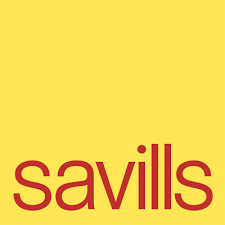 With the cost of living crisis continuing to bite, a number of first-time buyers across the UK have been forced to review their budgets, according to a new report.
With the cost of living crisis continuing to bite, a number of first-time buyers across the UK have been forced to review their budgets, according to a new report.
Savills says that the impact of rising costs is being felt lower down the prime market, with a third – 33% – of those who are trying to take their first step onto the housing ladder having reduced their budgets as a result of interest rate rises.
At the same time, close to half – 47% – of those looking at properties priced below £500,000 said that their budgets had decreased because of the rising cost of living.
“Rising interest rates limit affordability at the point of purchase, which will especially impact first-time buyers who have less equity to back them and will no longer have the support of the government’s Help to Buy scheme from April 1 next year if looking to buy a new build home. Falling numbers of first-time buyers starting chains could impact transactions as a whole further down the line this year,” said Frances Clacy, research analyst at Savills.
The study, based on a survey of 1,300 buyers and sellers, also found that the continued shortage of stock available to buy is inhibiting buyers’ ability to move.
The lack of supply is being felt most keenly at the top end of the market with 71% and 68% of buyers buying at £1m to £2m and above £2m respectively stating that a lack of available stock is having a significant impact on their ability to buy – versus 63% of all buyers.
The number of homes for sale is down by a third compared with what was available before the pandemic, according to the latest TwentyCi data, and have been running 8% below average since March 2019. However, there remains a sustained commitment to move. A net balance of 22% of existing buyers are looking to move in the next 12 months, and 18% are eager to move in the next three months.
Savills found that in the face of a more competitive market, buyers overall are having to hold steady on budgets. Some 80% of those surveyed said that the three consecutive increases on interest rates over the last couple of months has had no impact on their budget. At the same time, almost three quarters – 74% – also said that the rising cost of living has had no impact on their budget.
“With the market as competitive as it is, motivated buyers can ill afford to reduce budgets, despite rises to mortgage rates and household bills. But most buyers at the top end of the market will have built up equity in their existing home and will be able to fix into more favourable rates and are therefore less impacted by the squeeze. Our analysis also suggests that as many as 30% will effectively be cash buyers,” added Clacy.
The research also revealed that buyer priorities are changing, with those who can afford it prepared to pay more on a home if at least 75% of the property’s energy was powered by renewable sources.
In fact, more than a quarter said they would be happy to pay more than 5% extra for the privilege. This comes as 68% of respondents said EPC ratings were important to their decision making, with a third saying that they placed more importance on this than they did a year ago.
Frances Clacy continued: “As households face mounting energy bills, buyers are ready to pay more for cleaner homes upfront, to offset rising bills in the long term. The fitting of extra insulation and double glazing can cost thousands upon moving in and paying more upfront could prove more cost-efficient in the longer term.”


Comments are closed.